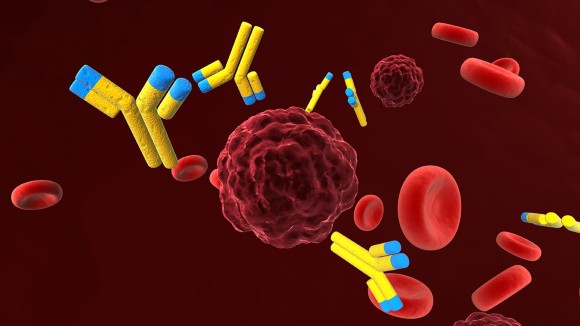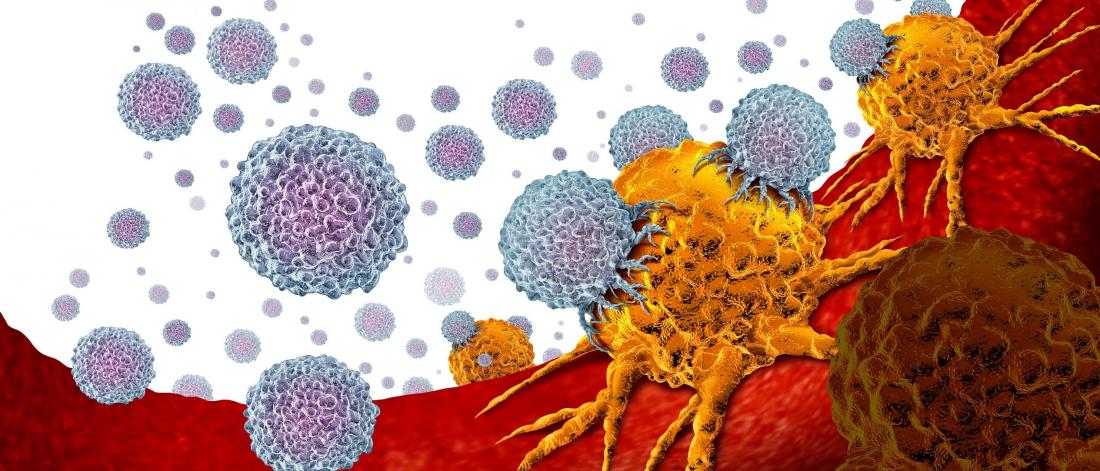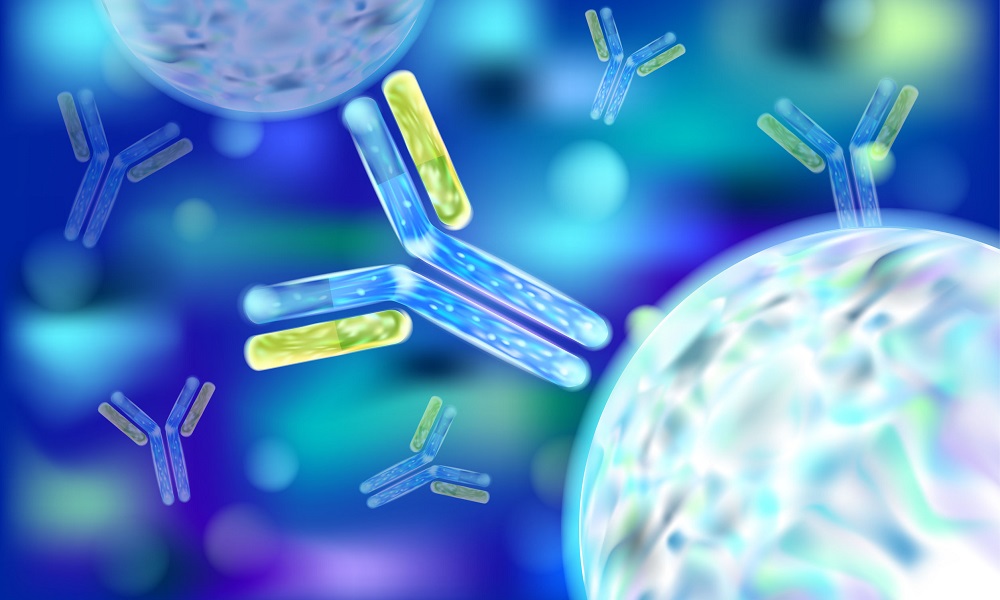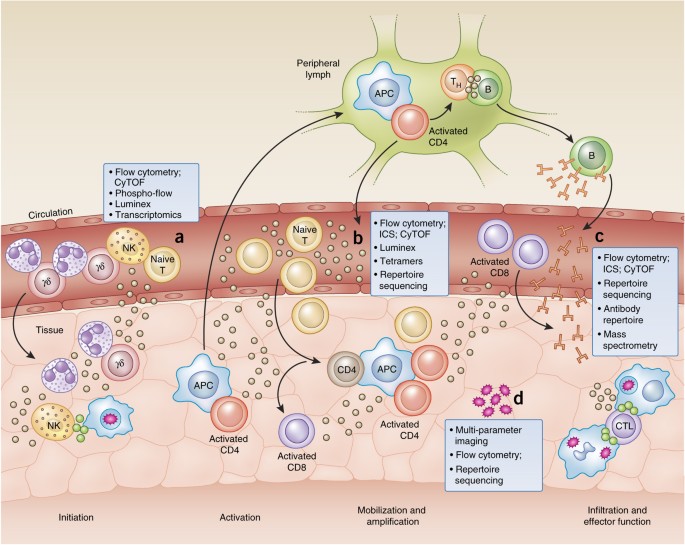Immunology, the study of the immune system, is a captivating and crucial field that impacts our understanding of health and disease. Whether you’re a health enthusiast eager to learn more or a student stepping into the world of immunology, this guide will provide you with the essentials. We’ll explore the basics of the immune system, discuss key concepts in immunology, and highlight real-world applications through case studies.
Toc
Introduction to Immunology

The immune system is a complex network of cells, tissues, and organs that work together to protect the body from harmful pathogens. From bacteria and viruses to parasites and toxins, our bodies are constantly under attack by foreign invaders. However, thanks to the immune system’s remarkable ability to identify and eliminate these threats, we are able to maintain good health.
Immunology is the study of this intricate defense mechanism and how it functions in response to various challenges. It encompasses a wide range of disciplines, including microbiology, genetics, biochemistry, physiology, and pathology. By understanding the complexities of the immune system and its interactions with other systems in the body, immunologists play a vital role in developing treatments for diseases such as cancer, autoimmune disorders, and allergies.
What is Immunology?
Immunology is the branch of biomedical science that deals with the study of the immune system, which is the body’s defense mechanism against infections, diseases, and foreign substances. The immune system is a complex network of cells, tissues, and organs that work together to protect the body. It is made up of two main components: the innate immune system and the adaptive immune system.
The innate immune system is the first line of defense against pathogens. It includes physical barriers such as skin and mucous membranes, as well as cells called phagocytes that engulf and destroy foreign invaders. The adaptive immune system, on the other hand, is a highly specialized and dynamic response that targets specific pathogens using T-cells and B-cells.
Key Concepts in Immunology
There are many key concepts in immunology that are essential to understanding how our bodies defend against disease. These include:
- Antigens: Substances that trigger an immune response by binding to specific receptors on immune cells.
- Antibodies: Proteins produced by B-cells that bind to and neutralize antigens.
- T-cells: A type of white blood cell that plays a central role in coordinating immune responses.
- Major Histocompatibility Complex (MHC): Proteins on the surface of cells that help the immune system distinguish between self and non-self cells.
- Immune Memory: The ability of the adaptive immune system to remember and respond quickly to previously encountered pathogens.
Immune System Basics

To function properly, the immune system must be able to distinguish between self and non-self cells. It does this through a complex network of signaling molecules, receptors, and checkpoints that allow it to identify and target foreign invaders while maintaining tolerance to healthy cells.
The Role of Antigens
Antigens are critical players in the immune response. They can be proteins, carbohydrates, lipids or other molecules found on the surface of pathogens or on the surface of our own cells (called self-antigens). When an antigen binds to a specific receptor on an immune cell, it triggers
Innate Immunity
Innate immunity is the body’s first line of defense and includes physical barriers like the skin and mucous membranes, as well as immune cells that respond quickly to invaders. This response is nonspecific, meaning it targets all pathogens in the same way.
Adaptive Immunity
Adaptive immunity, also known as acquired immunity, is a more specialized response. It develops over time and provides long-lasting protection. This system “remembers” previous encounters with specific pathogens, allowing for a faster and stronger response upon subsequent exposures. The two main types of adaptive immune responses are cell-mediated immunity (involving T-cells) and humoral immunity (involving B-cells).
Key Components of the Immune System

The immune system is a vast and intricate network of cells, tissues, and organs that work together to protect the body from harmful invaders. Some of the key components include:
White Blood Cells (Leukocytes)
White blood cells, or leukocytes, are pivotal players in the immune system. They are produced in the bone marrow and circulate throughout the body via the blood and lymphatic system. There are several types of white blood cells, each with a specific role in defending the body against pathogens:
- Neutrophils: These are the most abundant type of white blood cells and are among the first responders to infection. They are highly effective at engulfing and destroying bacteria and fungi.
- Lymphocytes: This category includes T-cells and B-cells, which are crucial for the adaptive immune response. T-cells attack infected or cancerous cells, while B-cells produce antibodies to neutralize pathogens.
- Monocytes: These cells migrate into tissues and differentiate into macrophages and dendritic cells, which help in engulfing pathogens and presenting antigens to T-cells.
- Eosinophils: These are particularly effective against parasites and also play a role in allergic reactions.
- Basophils: These cells release histamine and other chemicals that are involved in inflammatory responses and can contribute to allergic reactions.
Lymphatic System
The lymphatic system is another crucial component of the immune system. It consists of a network of vessels that transport lymph, a clear fluid containing immune cells, throughout the body. Key structures within the lymphatic system include:
- Lymph Nodes: Small, bean-shaped structures distributed throughout the body, lymph nodes act as filtering stations where immune cells can identify and attack pathogens that are carried in the lymph.
- Spleen: An organ located in the upper left part of the abdomen, the spleen filters blood, removes old or damaged blood cells, and helps mount an immune response against blood-borne pathogens.
- Thymus: Located just above the heart, the thymus is where T-cells mature. It is most active during childhood and shrinks with age.
- Tonsils and Adenoids: These are masses of lymphoid tissue located in the throat and nasal cavity, respectively. They help protect against pathogens that enter through the mouth and nose.
Mucosal Immune System
In addition to the blood and lymphatic systems, the mucosal immune system plays a vital role in protecting the body from pathogens that enter through mucosal surfaces such as the digestive, respiratory, and urogenital tracts. This system includes:
- Mucosal-Associated Lymphoid Tissue (MALT): This is a collective term for lymphoid tissues associated with mucosal surfaces, including Peyer’s patches in the intestines, which monitor and respond to potential threats in the gut.
- Gut-Associated Lymphoid Tissue (GALT): Located in the gastrointestinal tract, GALT monitors and orchestrates the immune responses to pathogens that enter through ingestion. It includes structures like the appendix and tonsils.
- Bronchus-Associated Lymphoid Tissue (BALT): Found in the lungs and respiratory tract, BALT helps protect against inhaled pathogens.
Immune Cells
Various specialized immune cells play unique roles in the immune response:
- Natural Killer (NK) Cells: These cells are lymphocytes that can recognize and kill virus-infected cells and tumor cells without the need for prior sensitization to the specific pathogen.
- Macrophages: Large phagocytic cells that ingest and break down pathogens, dead cells, and other debris. They also play a role in presenting antigens to T-cells to initiate an adaptive immune response.
- Dendritic Cells: These are key antigen-presenting cells that capture antigens and migrate to lymph nodes to activate T-cells.
- Mast Cells: Found in connective tissues, these cells release histamine and other chemicals during inflammatory and allergic reactions.
The Impact of Immunology on Public Health

Immunology plays a pivotal role in public health by informing the development and implementation of vaccines, monitoring and controlling infectious diseases, and understanding immune-related disorders such as allergies, autoimmune diseases, and immunodeficiencies.
Vaccination
Vaccination is one of the most effective public health interventions ever devised. By exposing individuals to a harmless form of a pathogen, vaccines stimulate the immune system to develop memory cells. This enables the body to mount a faster and more robust response upon encountering the actual pathogen, thereby preventing illness. The widespread use of vaccines has led to the eradication of diseases like smallpox and has significantly reduced the incidence of others such as polio, measles, and influenza.
Infectious Disease Control
Immunology is crucial in the surveillance, diagnosis, and management of infectious diseases. Through the use of immunological techniques such as serology and molecular diagnostics, health professionals can identify pathogens, track outbreaks, and implement appropriate measures to contain the spread of diseases. Understanding the immune response to various pathogens also aids in the development of targeted treatments and therapeutic interventions.
Allergies and Autoimmune Diseases
Allergies occur when the immune system overreacts to harmless substances like pollen, dust, or certain foods. Research in immunology helps elucidate the underlying mechanisms of allergic reactions and facilitates the development of treatments such as antihistamines and immunotherapy. Similarly, autoimmune diseases, where the immune system mistakenly attacks the body’s own tissues, are better understood through immunological studies. Conditions like rheumatoid arthritis, lupus, and multiple sclerosis benefit from this research, leading to more effective and targeted therapies.
Immunodeficiencies
Immunodeficiencies, whether congenital or acquired, result in a weakened immune system that is less capable of fighting off infections. Research in this area has led to improved diagnostic techniques and treatments, including bone marrow transplants, gene therapy, and the use of biologics to boost immune function. Understanding how to manage and treat immunodeficiencies is vital for individuals with conditions such as HIV/AIDS and primary immunodeficiency diseases.
By advancing our understanding of how the immune system functions and malfunctions, immunology significantly enhances global health, paving the way for new treatments, preventive measures, and innovative therapies that continue to save lives and improve health outcomes worldwide.
Recent Advancements in Immunology

Recent years have witnessed groundbreaking advancements in the field of immunology that have significantly impacted medical science and public health. These advancements include novel vaccine technologies, cancer immunotherapy, and the development of new diagnostic tools.
mRNA Vaccines
One of the most remarkable breakthroughs in recent history is the development of mRNA vaccines, which came into prominence during the COVID-19 pandemic. mRNA vaccines, such as those developed by Pfizer-BioNTech and Moderna, use a small piece of messenger RNA to instruct cells to produce a protein similar to that found on the surface of the virus. This induces an immune response without using live virus particles, making the vaccines both highly effective and quick to produce. The success of these vaccines is now opening paths for mRNA
vaccines to be utilized against a range of other infectious diseases and even some cancers. The flexibility and rapid production capability of mRNA vaccine platforms are poised to revolutionize how we respond to emerging infectious threats and personalized medicine.
Cancer Immunotherapy
Another significant advancement in immunology is the enhanced understanding and application of cancer immunotherapy. This approach harnesses the body’s own immune system to fight cancer. Treatments such as checkpoint inhibitors, CAR-T cell therapy, and monoclonal antibodies have shown remarkable success in treating various types of cancer. Checkpoint inhibitors work by blocking proteins that prevent immune cells from attacking cancer cells, thereby boosting the immune response against tumors. CAR-T cell therapy involves engineering a patient’s own T-cells to better recognize and attack cancer cells. These therapies have transformed the outlook for many patients with previously resistant forms of cancer, offering new hope where conventional treatments failed.
Advanced Diagnostic Tools
Immunological research has also led to the creation of more sophisticated diagnostic tools. Techniques such as next-generation sequencing (NGS), multiplex assays, and advanced imaging technologies allow for more precise identification of pathogens, better monitoring of immune responses, and early detection of immune-related diseases. These tools are invaluable in tailoring personalized treatment plans, monitoring disease progression, and enhancing our overall understanding of immune system dynamics.
Microbiome Research
An emerging area of interest in immunology is the study of the human microbiome—the diverse community of microorganisms living in and on our bodies—and its interaction with the immune system. Research has shown that the microbiome plays a crucial role in maintaining immune homeostasis and protecting against pathogens. Dysbiosis, an imbalance in the microbial communities, has been linked to various immune-related conditions, including inflammatory bowel disease, allergies, and even mental health disorders. Understanding the intricate relationship between the microbiome and the immune system could lead to novel therapeutic strategies targeting gut health to improve immune function and overall health.
Conclusion
The future of immunology holds immense promise, with ongoing research continuously unveiling new aspects of the immune system and its potential applications. Personalized immunotherapy, for instance, aims to tailor treatments based on individual genetic and immunological profiles, ensuring maximum efficacy and minimal side effects. Advances in genomic editing technologies, like CRISPR, offer the possibility of correcting genetic defects that underlie certain immunodeficiencies or autoimmune conditions.
Additionally, the exploration of nanotechnology in immunology opens avenues for precisely targeted drug delivery systems and novel vaccine formulations. Nano-sized particles can be engineered to interact with specific components of the immune system, enhancing the body’s ability to fend off diseases with increased precision and efficiency.
Immunology’s interdisciplinary nature means it continuously benefits from technological advancements in other fields such as bioinformatics, artificial intelligence, and systems biology. The integration of big data analytics in immunological research enables scientists to decipher complex immune interactions and predict responses to various therapies.
Overall, the advancements and future directions in immunology illustrate a robust and rapidly evolving field with a far-reaching impact on health and disease management. Through the relentless pursuit of knowledge and innovative solutions, immunology will undoubtedly continue to play a pivotal role in improving human health and combating diseases for generations to come.













